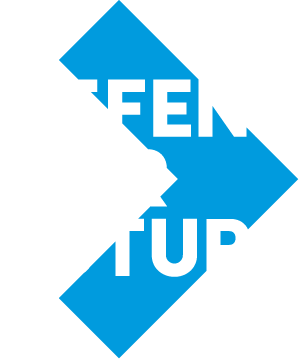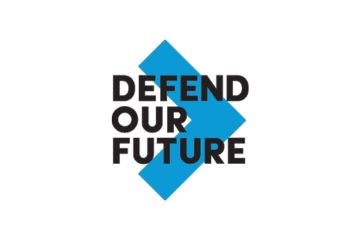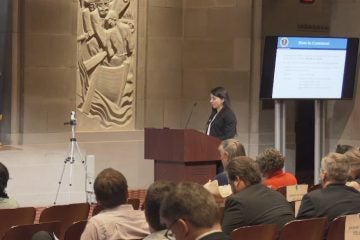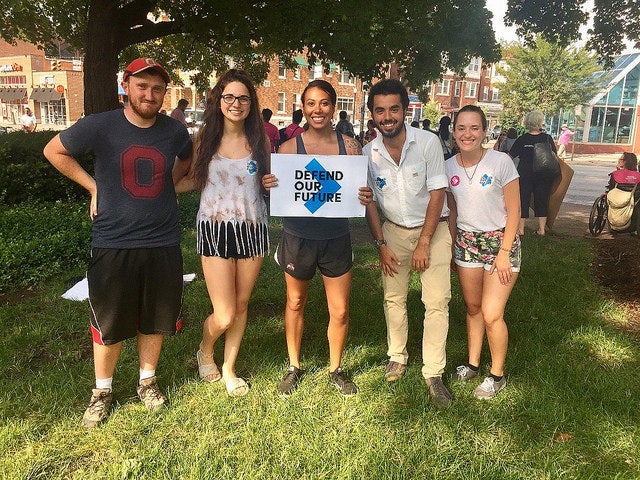LGBTQ+ justice, environmental justice, and racial justice are all inextricably linked.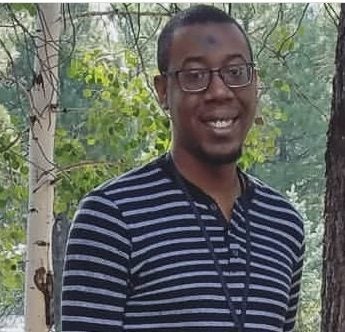
As a queer Black man, “Pride” brings up a lot for me — and it’s not all rainbows and sunshine. For me, it seems that white cis men have dictated who gets to be a part of the LGBTQ+ community.
But this isn’t isolated to the gay rights movement. We see this in the environmental movement as well, a movement that for so long has been centered around white people, despite people of color facing disproportionate impacts of pollution and climate change.
This year, however, it feels important to celebrate pride. At its core, pride is a way to normalize queerness in our society. In the few last weeks, we’ve seen highs and lows when it comes to LGBTQ+ rights. The Supreme Court ruled that LGBTQ+ folks can’t be fired from their jobs because of their identity. Like marriage equality, it’s a big win, but it’s not the end of this fight.
Black trans women have also been murdered without justice — Dominique Fells, Riah Milton, and so many others. There are still many ways people can legally discriminate against LGBTQ+ folks, from denying housing and loans, to the Trump administration’s recent attempts to roll back trans people’s health protections (in the middle of a pandemic) and allow adoption agencies to discriminate against queer people.
LGBTQ+, particularly those of color, make up a large percentage of homeless youth. Take discrimination in pay, housing, and healthcare, then couple it with systemic racism and it’s not hard to understand why. People experiencing homelessness are more vulnerable to the extreme heat and cold that comes as a result of climate change.
This isn’t just a “queer” issue, it’s a Black issue — and it needs to be EVERYONE’S issue. That’s why it’s so critical that as environmentalists, we celebrate and bring queer people into our movement. The environmental justice movement needs social justice, or we will never win the future we dream of.
So, what can you do? The first step — always — is to educate yourself, to expose yourself to the experiences of more LGBTQ+ people, and identify ways you may be holding up dangerous systems. Then it’s time to put that learning into action.
We’ve pulled together a very non-exhaustive list for you. You can start here, but then do your own research to find more!
Watch these movies and shows:
The Times of Harvey Milk – documentary on the life of Harvey Milk, who was the first openly gay person to be elected to public office in California
Disclosure – a documentary produced by Laverne Cox on trans representation in popular media (Netflix)
Pose – a Netflix show that has the largest cast of trans actors as series regulars on a scripted show, depicts the 1980s New York ball scene
Read these books:
Sister Outsider by Audre Lorde (and all of her books)
Wow, No Thank You by Samantha Irby
Sissy: A Coming of Gender Story by Jacob Tobia
We Are Everywhere: Protest, Power, and Pride in the History of Queer Liberation by Matthew Riemer and Leighton Brown
Fun Home by Alison Bechdel
Listen to these podcasts:
Nancy
Still Processing
Hoodrat to Headwrap
Latinos Who Lunch
Outward by Slate
The Read
Google:
If only there were a way to find more information on literally any topic with just a few taps of your fingers. Oh, there is. Get Googling!
You can find local LGBTQ+ organizations near you here, and resources on protections for LGBTQ+ people in your state here.
As you wave your rainbow flags this month, never forget that the first pride action at Stonewall in 1969 was a riot led by Black trans women. We owe how far we’ve come to them — and we owe it to them to keep fighting for equality.
Keep learning, keep acting, keep fighting.
Richard Gallon is Defend Our Future’s Arizona Campaign Manager.
